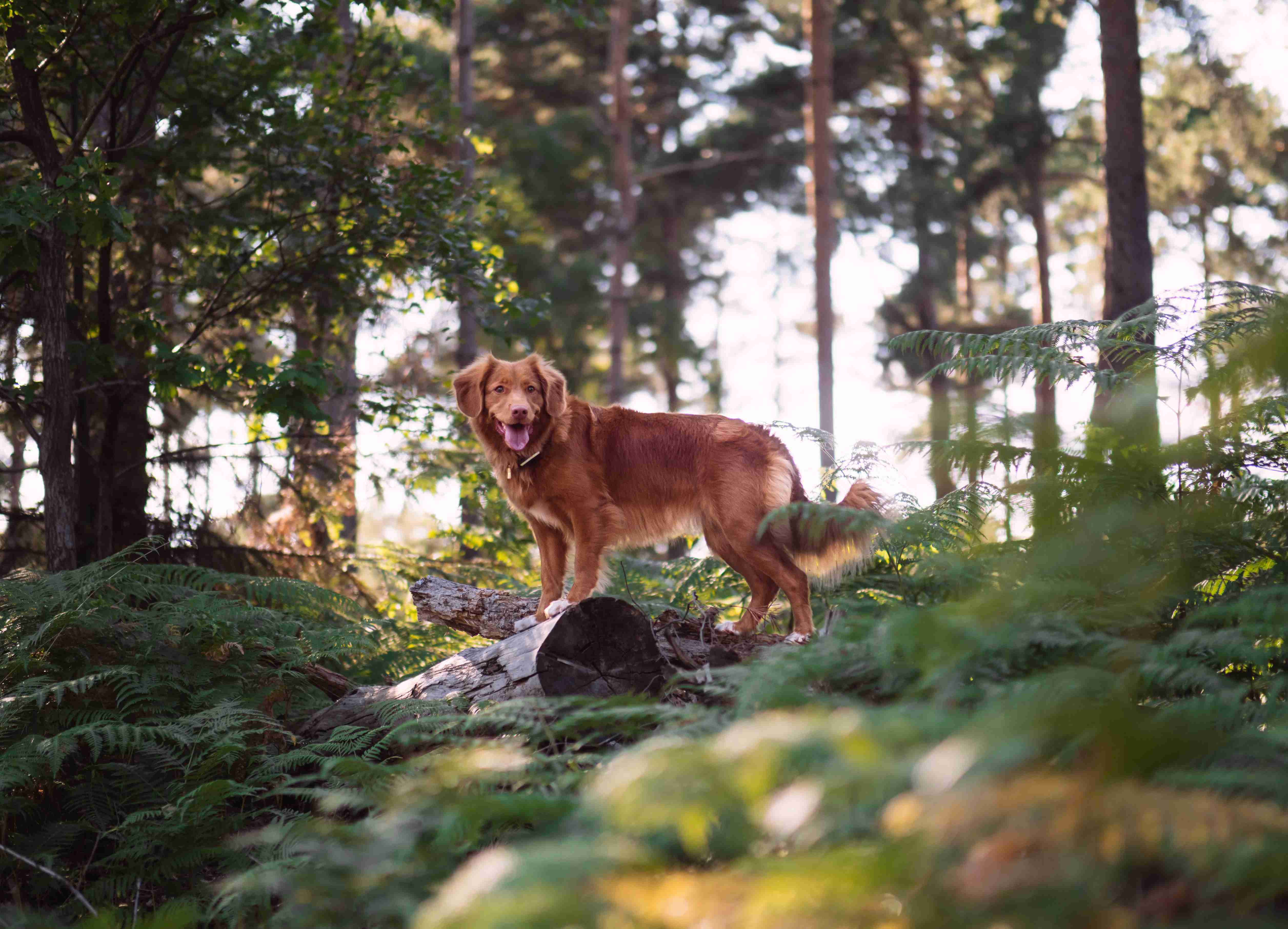Petwah Vet Verified Content
This entire content is verified by a professional vet. Learn more about our process.

Dogs foam at the mouth for a variety of reasons, but most of them have to do with their health. Dogs pant to cool down, and when they pant heavily, the drool can start to froth and look like foam. Dogs may also foam at the mouth if they are suffering from an illness or injury. If you see your dog foaming at the mouth, it’s important to take him to the vet right away for treatment.
What is dog foaming?

When a dog’s mouth becomes filled with air and saliva, it is referred to as foaming. Dogs foam at the mouth for various reasons, including heavy panting or when they are excited. When your dog is foaming at the mouth, you may notice that the froth is white or light-colored.
There are many different reasons why dogs foam at the mouth. In some cases, it may be due to a medical condition that requires treatment from a veterinarian. Other times, it may simply be because your dog is panting heavily or is excited about something. If you’re not sure why your dog is foaming at the mouth, it’s always best to consult with your vet to rule out any potential health concerns.
Is dog foaming similar to dog drooling?
The answer is yes and no. All dogs drool, but not all dogs foam at the mouth. Foam or froth simply drools that have been infused with air. Dog panting and other heavy breathing can cause this. When he’s breathing hard, the air movement in his mouth causes the drool to froth, giving it a foamy appearance.
So if your dog is foaming at the mouth, it’s likely because he’s panting heavily which could be due to exercise, heat, excitement, or anxiety. Dogs also tend to foam at the mouth when they’re sick or in pain. If your dog is foaming at the mouth and you’re not sure why it’s always best to check with your vet.
Dog drooling is usually nothing to worry about – it’s just a sign that your dog is thirsty or needs to cool down. But if your dog is drooling excessively, it could be a sign of something more serious, like an infection or foreign body in the mouth. Again, if you’re ever concerned about your dog’s drooling, it’s best to check with your vet.
Reasons behind dog foaming at the mouth

There can be a number of reasons your dog is foaming at the mouth. It could be as simple as they just ate or drank something and their mouth is still wet. Dogs also foam at the mouth when they’re hot and trying to cool themselves off by panting.
Other causes could be more serious, like rabies. If your dog is acting strangely, it’s always best to err on the side of caution and take them to see a vet right away. Other illnesses that may cause dogs to foam at the mouth include distemper, kennel cough, poisoning, and certain types of cancer.
Don’t forget that dogs sometimes drool when they’re excited too! If you’ve ever seen a dog drooling excessively and foaming at the mouth, it’s likely because they’re so excited they can’t control their saliva production. While this is usually harmless, if you’re concerned about your dog’s excessive drooling, it’s always best to consult with a vet.
Dogs foam at the mouth for all sorts of reasons – some benign and some more serious. If you’re ever unsure about why your dog is foaming, the best course of action is to take them to see a vet right away. Better safe than sorry!
5 health reasons why dogs foam at the Mouth?
Dogs can foam at the mouth for a variety of reasons. Some of these reasons may be due to health concerns, while others may simply be the result of heavy panting. Let’s take a look at five potential causes of dogs foaming at the mouth:
- Allergies: Dogs with allergies may foam at the mouth as a result of itching or irritation. This is often seen in conjunction with other symptoms like scratching, red eyes, and sneezing.
- Kennel cough: Kennel cough is a highly contagious respiratory infection that can cause dogs to foam at the mouth. Other symptoms include coughing, runny nose, and fever.
- Mouth injuries: Dogs that have injuries to their mouths or teeth may foam at the mouth due to pain. This is often seen in conjunction with other symptoms like pawing at the face, drooling, and appetite loss.
- Heatstroke: Dogs that are overheated may foam at the mouth as their bodies attempt to cool down. Other symptoms of heatstroke include panting, excessive thirst, and lethargy.
- Poisoning: Dogs that have ingested poisonous substances may foam at the mouth as their bodies try to expel the toxins. Other symptoms of poisoning include vomiting, diarrhea, and seizures. If you suspect your dog has ingested poison, please contact your veterinarian or emergency animal hospital immediately.
If your dog is foaming at the mouth and you are unsure of the cause, please contact your veterinarian. They will be able to perform a physical examination and run any necessary tests to determine the cause. In some cases, treatment may be required. However, in other cases, the foaming may resolve on its own with no medical intervention needed.
Serious issues related to dog foaming

While foam is mostly just saliva and air, there can be times when it indicates a more serious issue. If your dog is suddenly foaming at the mouth and you cannot determine the cause, it’s always best to consult with your veterinarian. Some possible causes of excessive foaming include:
- Allergies
- Medication side effects
- Infections
- Poisoning
- Neurological disorders
If your dog is experiencing any other symptoms along with the foam, such as vomiting, diarrhea, lethargy, or difficulty breathing, this is even more reason to seek medical attention immediately. Foaming at the mouth can also be a sign of rabies, so if your dog has not been vaccinated, this is an emergency situation.
How to deal with dog foaming at the mouth?
If you notice your dog foaming at the mouth, the first thing you should do is check to see if there is anything caught in their teeth or gums that could be causing irritation. Once you have ruled that out, take a look at what your dog has been eating or drinking. If they seem to be having an allergic reaction to something, give them some Benadryl and contact your veterinarian.
If your dog has been panting heavily due to exercise or heat, make sure they have plenty of water to drink and are not left in direct sunlight for too long. Dogs can get sunburned and overheat just like humans, so it’s important to keep an eye on them when the weather is hot.
Most importantly, if your dog is foaming at the mouth and you can’t figure out why, or they seem to be in pain, contact your veterinarian immediately. Foaming at the mouth can sometimes be a sign of a more serious condition, so it’s always best to err on the side of caution.
When is a good time to take the dog to the vet if he is foaming?

Dogs foam at the mouth for a variety of reasons, most of which are harmless. However, if your dog is foaming at the mouth and showing other signs of illness, it’s always best to take him to the vet to be sure. Some conditions that can cause dogs to foam at the mouth include rabies, distemper, kennel cough, and poisoning.
If your dog has never foamed at the mouth before and suddenly starts doing it, it’s especially important to have him checked out by a professional. Foaming at the mouth can also be a sign of heat stroke in dogs, so if it happens during hot weather or after strenuous exercise, those may be causes worth considering as well. In any case, if you’re ever unsure about why your dog is foaming at the mouth, it’s always best to err on the side of caution and take him to see the vet.
In conclusion, dogs foam at the mouth for many reasons ranging from simple to complex. If you’re ever concerned about your dog’s health, always consult with your veterinarian first. They will be able to help you figure out what is causing the problem and how to best treat it. Thanks for reading! I hope this article was helpful. :)”
Please follow us on Social Media



%20-%20Copy.jpg)


.jpg)